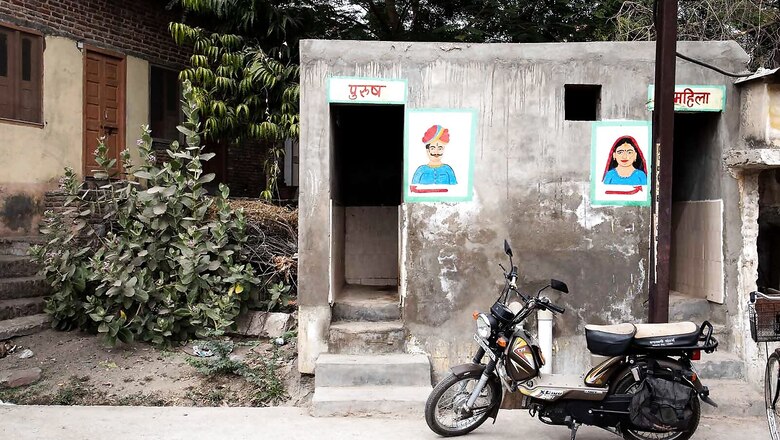
views
Safe sanitation and hygiene facilities for the public are prerequisites for any country’s development. Given our cultural and socio-economic conditions, these facilities are even more important for empowering women and girls. The availability of toilets in public spaces, institutions, and homes is essential for women. Lack of access to toilets compromises the safety and dignity of women while negatively impacting their education and employment opportunities. Building toilets that meet the needs of women, especially those in rural areas, is an integral part of empowering women.
In India, gathering water for cooking and cleaning has traditionally been seen as the responsibility of women. This means that if there is a scarcity of water, girls are the first ones to be pulled out of school to help their mothers and other elderly women fetch water from faraway places. Children, especially girls, often miss out on classroom learning in schools that do not have washrooms. Due to lack of access to safe sanitation, women are often forced to spend time looking for a safe place to defecate or urinate in the open. Adolescent girls are especially unwilling to use dirty or privacy-devoid school toilets, particularly when they are menstruating. This affects their attendance in school and often causes them to drop out. Students also miss out on school due to diseases arising from poor sanitation and hygiene.
The lack of private toilets at work is also a major safety concern for women, particularly in urban areas. Women are often vulnerable to harassment or violence while using shared public toilets. Consequently, women end up waiting till it is dark outside to relieve themselves. In unlit fields and open spaces, the risk of assault increases during the night. In putting off the urge to defecate or urinate as well as reducing water and food intake to delay the need to expel waste, women run the risk of many health issues, including urinary tract infections.
Government flagship programmes like Jal Jeevan Mission and Swachh Bharat Mission (Grameen) have made significant contributions to improving the lives and empowering women and girls. Both the schemes have ensured a larger participation of women in decision making around water and sanitation practices. Under Jal Jeevan Mission, every village water and sanitation committee needs to have at least 50 percent women members. Women have already successfully shouldered the responsibilities of managing village water supply systems. They have been trained to conduct water quality tests in villages and operate pump houses. Jal Jeevan Mission has also saved the women from the arduous efforts of fetching water from far-flung water resources. Under SBM (Grameen) women have played an important role in the construction of toilets and maintaining safe sanitation standards – resulting in new employment opportunities for many. Access to household toilets has also saved women from many health risks. Pink toilets, another initiative under SBM (Grameen), have also catered to the menstrual hygiene needs of women.
With improved access to water, safe sanitation, and hygiene, we as a society have a better chance of ensuring gender inequalities in terms of education and employment. Equal access to toilets for women will minimise their health risks, and the availability of water could save their time, which can open up more productive avenues.
Mission Swachhta Aur Paani, a News 18 and Harpic India initiative, advocates the availability and usage of clean water and safe sanitation for all. Let’s all come together for Mission Swachhta Aur Paani- Mil Kar Lein Ye Zimmedari, to ensure sustainable and inclusive sanitation. On the occasion of World Toilet Day on November 19, a grand Telethon will bring together government representatives, celebrities, artists, change makers, policy experts and youth icons to celebrate the cause . To join the Telethon, log on to: Mission Swachhta Aur Paani
Read all the Latest News here



















Comments
0 comment